The constitutional power battle continues, creating waves across Jammu and Kashmir’s political landscape today. Centre officials have informed the High Court about unprecedented nomination rights during recent legal proceedings. This ruling could reshape how democratic representation works within the union territory going forward.
Understanding the Lieutenant Governor’s Expanded Powers
Recent court filings reveal the Lieutenant Governor possesses independent authority to nominate five members without consulting elected officials. This power stems from constitutional provisions established after Jammu and Kashmir’s special status was revoked. Legal experts argue that this arrangement creates unique governance dynamics that are rarely seen elsewhere.
The Centre clarified these powers through detailed submissions to the HC during ongoing constitutional challenges. Government lawyers emphasised that nomination rights exist independently from normal legislative procedures established through elections. This distinction marks a significant shift from previous democratic practices in the region.
Democratic oversight traditionally requires consultation between appointed officials and elected representatives on major decisions. However, these new provisions allow direct appointments without such collaborative processes or advisory mechanisms. Constitutional scholars debate whether this arrangement strengthens or weakens democratic institutions across the territory.
Legal Arguments Presented to High Court
Court proceedings have focused primarily on the constitutional validity of these expanded nomination powers. Centre representatives argued that these provisions ensure adequate representation for various minority communities within the assembly. They claim such measures protect vulnerable groups who might otherwise lack sufficient political voice.
Opposition lawyers contend that bypassing elected government advice undermines fundamental democratic principles throughout the region. They argue this system creates an imbalance between appointed and elected officials within legislative structures. Constitutional experts worry about precedents this arrangement might establish for other union territories.
The High Court must now evaluate competing constitutional interpretations regarding nomination processes and democratic accountability measures. Judges face complex questions about balancing minority representation with established democratic norms and procedures. Their decision could influence similar cases across other disputed territories nationwide.
Impact on Democratic Representation Structure
This nomination system fundamentally alters how representation works within Jammu and Kashmir’s assembly going forward. Five members appointed directly by the LG could influence crucial votes on legislation and policy matters. Their presence might shift political dynamics between ruling parties and opposition groups significantly.
Appointed members typically bring different perspectives compared to those who must face regular electoral accountability. Their positions may align more closely with Centre policies rather than local constituent preferences. This arrangement could create tension between appointed and elected representatives during legislative debates.
Key areas where this impact becomes most apparent include:
- Budget approval processes and financial legislation
- Policy decisions affecting local governance structures
- Constitutional matters requiring assembly consensus
- Administrative appointments and bureaucratic oversight
The balance between appointed and elected voices will determine how effectively this system serves public interests. Critics worry that too much appointed influence could undermine electoral mandates from voters across different constituencies.
Historical Context and Constitutional Framework
Jammu and Kashmir’s governance structure underwent major changes following the abrogation of Article 370 in 2019. The region’s transformation from a state to union territory brought new constitutional provisions and administrative arrangements. These changes included modified assembly structures with nominated member positions.
Previous arrangements required consultation mechanisms between different levels of government on major appointments and policy decisions. The new system grants more direct authority to Centre-appointed officials like the Lieutenant Governor in various matters. This shift reflects broader changes in how union territories operate compared to full states.
Constitutional experts note that union territories typically have different governance models compared to states with full legislative autonomy. However, Jammu and Kashmir’s unique history and special circumstances create additional complexity within these standard frameworks. The nomination provisions represent one aspect of this evolved governance system.
Political Reactions and Public Response
Political parties across Jammu and Kashmir have responded differently to these revelations about nomination powers and procedures. Regional parties generally oppose expanded LG authority, arguing it reduces local democratic control over important decisions. National parties tend to support measures they believe ensure stability and proper representation.
Elected government supporters argue that bypassing their advice on nominations undermines the democratic mandate they received from voters. They contend that elected officials understand local needs better than appointed administrators or Centre officials. This tension reflects broader debates about federal versus local control in sensitive regions.
Public opinion remains divided on whether these nomination powers serve legitimate constitutional purposes or represent democratic overreach. Some citizens appreciate efforts to ensure minority representation, while others prefer traditional electoral processes. The debate continues as legal proceedings advance through court systems.
Looking Ahead: Implications for Governance
The High Court’s eventual decision will establish important precedents for how nomination powers operate within union territory governance structures. This ruling could influence similar arrangements in other regions with special constitutional status or unique circumstances. Legal scholars will closely monitor how these provisions affect democratic accountability over time.
Future elections in Jammu and Kashmir will occur within this modified framework where five nominated members participate alongside elected representatives. Voters will need to understand how this system affects their representation and influence over policy decisions. Political parties must adapt their strategies to accommodate these structural changes.
The long-term success of this arrangement will depend largely on how effectively it balances different representation needs while maintaining democratic legitimacy. Constitutional experts will continue studying whether these provisions achieve their stated goals without undermining fundamental democratic principles throughout the region.

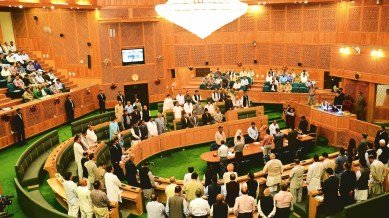
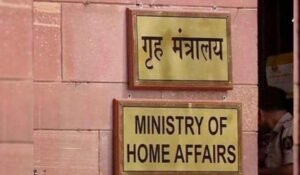
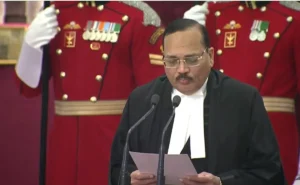
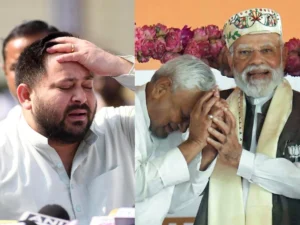
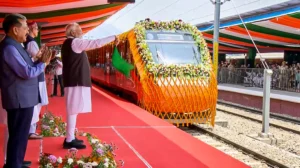


Be First to Comment